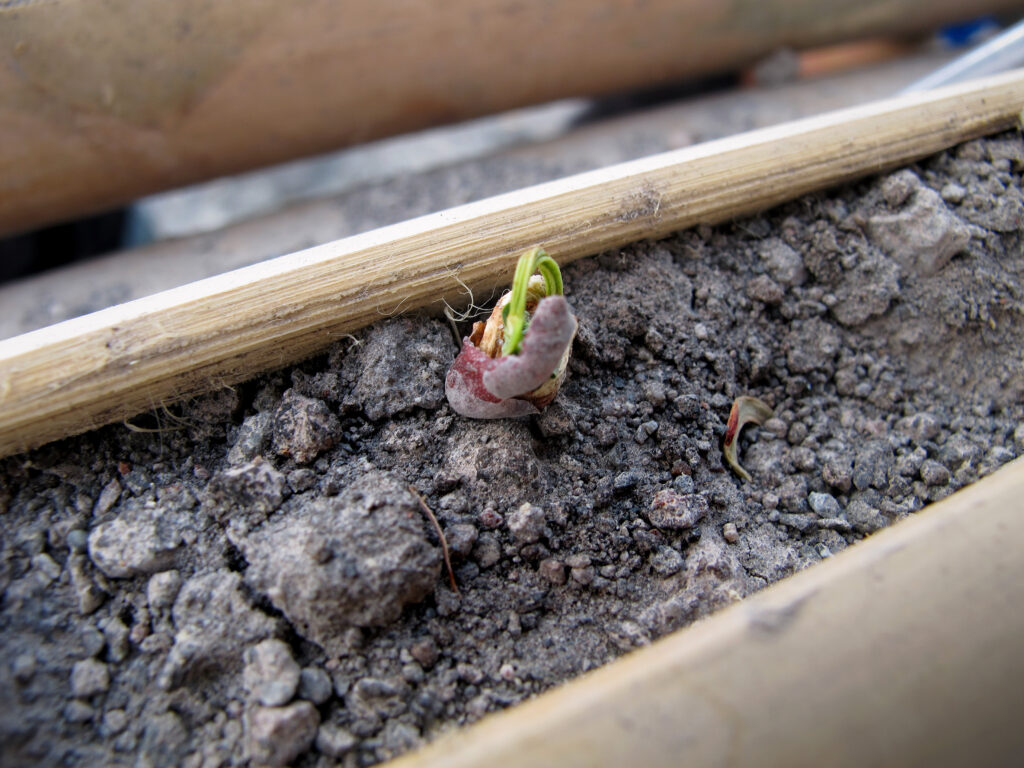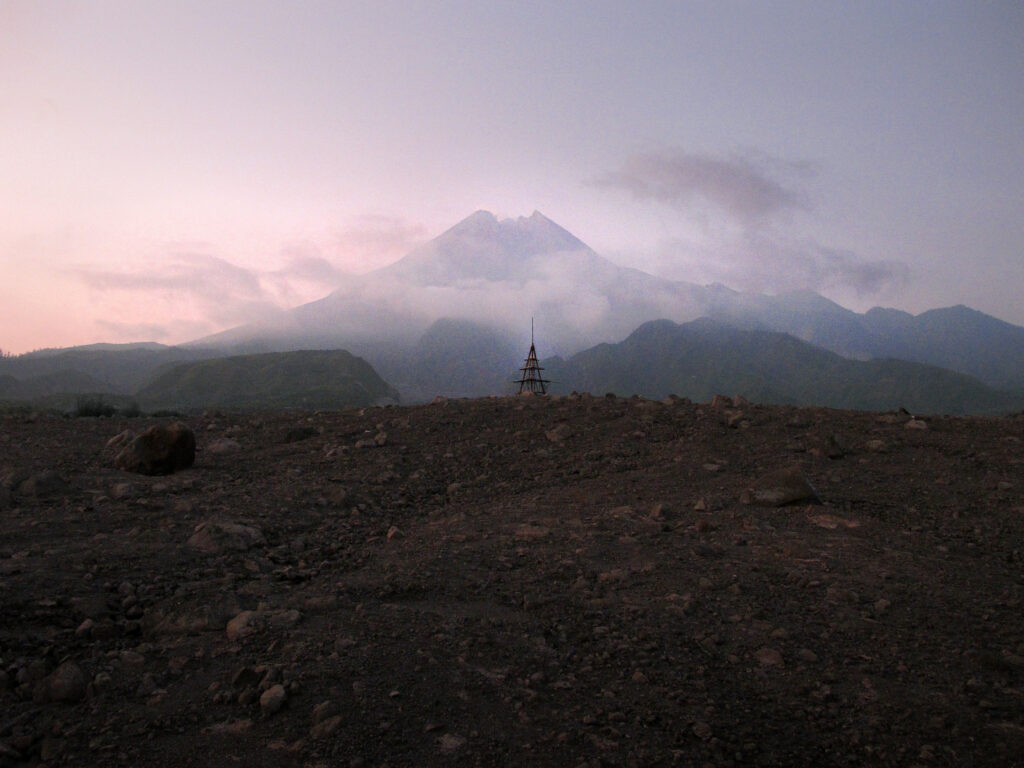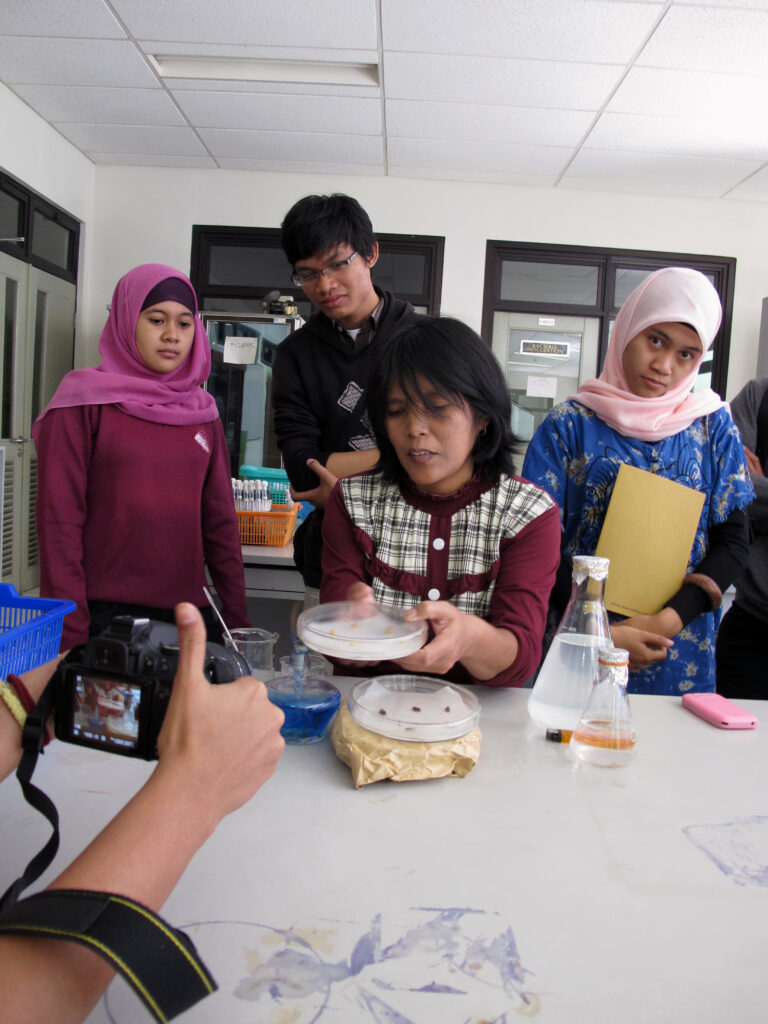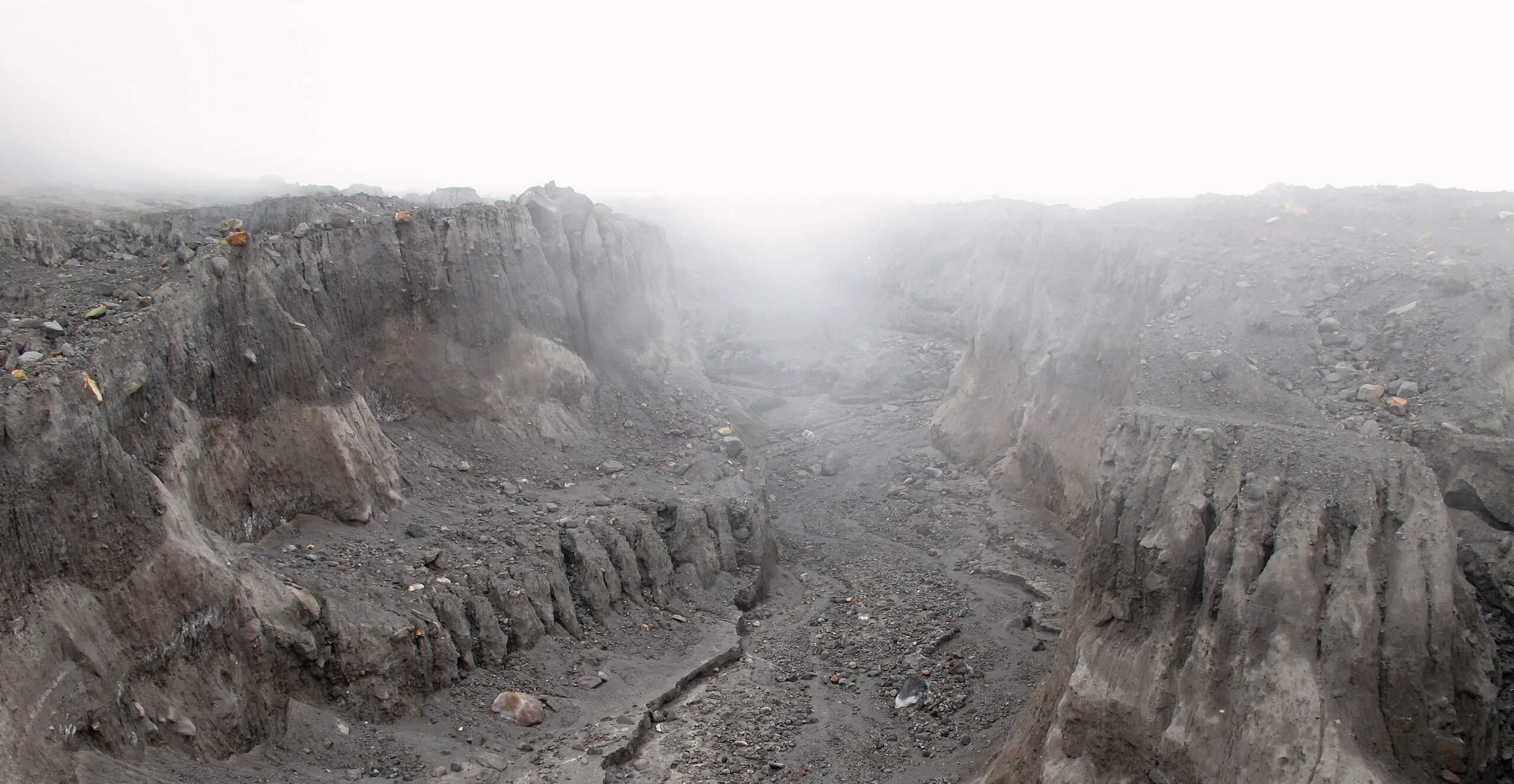The Merapi Terraforming Project was an art-science project on the Merapi volcano in Indonesia, set up in collaboration with the artist collective House Of Natural Fiber (HONF). Merapi is one of the most active volcanoes in the world, and erupts on regular intervals every few years. In 2010, a series of intense eruptions displaced approximately 300,000 people, covering a vast area with lava and volcanic ash. Contrary to popular belief, volcanic material of Merapi is not a good substrate for growing plants since it does not contain nitrogen, one of the key elements for plant metabolism.
The Merapi Terraforming Project consisted of a biological artwork that was erected on the flanks of the volcano in 2011. In collaboration with Gadjah Mada University (UGM), nitrogen-fixing Rhizobia bacteria were used to grow legumes as pioneering plants in volcanic soil. The bacteria characteristically trap atmospheric nitrogen and pass it on to the plants. The plants were cultivated in an architectural structure that operated both as monument and vertical laboratory.
The project was explicitly inspired by the concept of terraforming, and draws upon the ideas of space exploration and space settlement.
The artwork was developed in close collaboration with artists from Yogyakarta, biology and architecture students from UGM, and the local population from the Merapi region. Local collaborators conducted small-scale terraforming experiments, documenting the project with mobile phones and disseminating updates through social networks. While some plants thrived, others succumbed to challenges like drought or heavy rainfall washing away vegetation. The project generated considerable debate among the local population, and became the subject of heated discussions on the future use of destroyed land. The Merapi Terraforming Project illustrates how art, biology and social outreach can be combined to address real-world issues on Earth.





About the leading artist
Angelo Vermeulen is a space biologist, computational designer, complex systems engineer, and artist. He holds a PhD in developmental biology and ecology from KU Leuven.
Currently, he is in the final stages of completing his second PhD at TU Delft, developing bio-inspired concepts for interstellar exploration, with a focus on self-replicating architecture and biological life support systems. Vermeulen is the CTO (Chief Technology Officer) at SpaceBorn United, a company that focuses on the development of technologies for human reproduction in space. He has a profound interest in complexity science and is fascinated by principles of self-organisation, emergence and evolution, in both the domains of art and science.
In 2013 he served as Crew Commander of the first NASA-funded HI-SEAS Mars simulation in Hawaii, and in 2022 he reached the final 6% of candidates during the ESA Astronaut Selection process.
Vermeulen is currently an expert at ITACCUS (IAF Committee for the Cultural Utilisation of Space), and previously at ETTAS (European Space Agency Topical Team Arts & Science). He co-founded SEADS (Space Ecologies Art and Design), a cross-cultural collective of artists, scientists, engineers, and activists. In 2019 and 2020, SEADS sent its Ēngines of Ēternity art project twice to the International Space Station. Vermeulen was named Belgian Tech Pioneer in 2017 (De Tijd), received fellowships in the US (TED, Parsons School for Design), and has been awarded for his transdisciplinary creative work. To date, he wrote over 50 publications covering his research in art and science.
About HONF (House of Natural Fiber)
The House Of Natural Fiber, originally the Yogyakarta New Media Art Laboratory, is a community-driven initiative in Yogyakarta focusing on cross-collaborative actions in response to technological developments. Since 1999, they’ve emphasized critique and innovation, aiming to cultivate a forward-thinking, positive, and creative environment. Through initiatives like the Education Focus Program (EFP), which promotes interdisciplinary exchanges and collaborations, they seek to bridge art, science, and technology for societal benefit.

